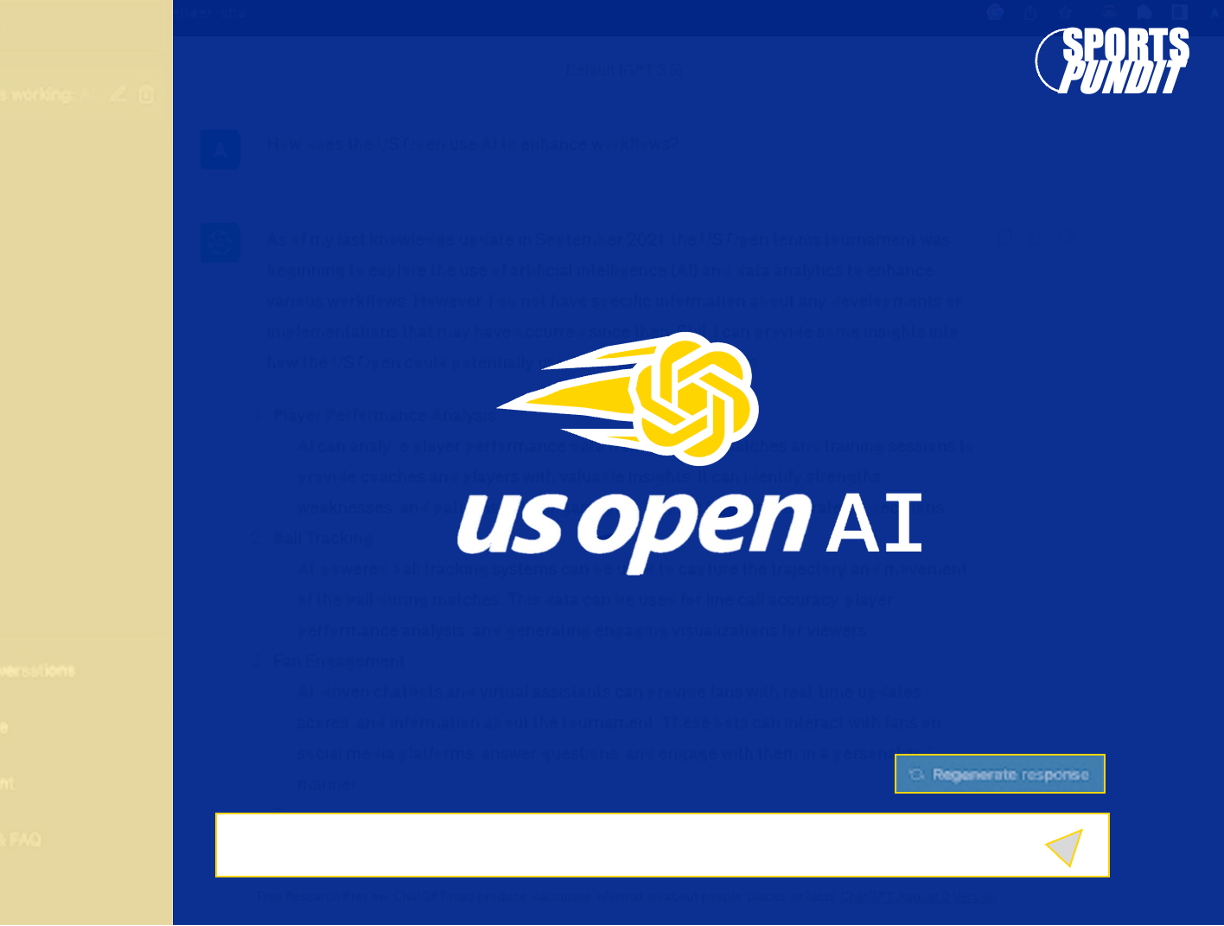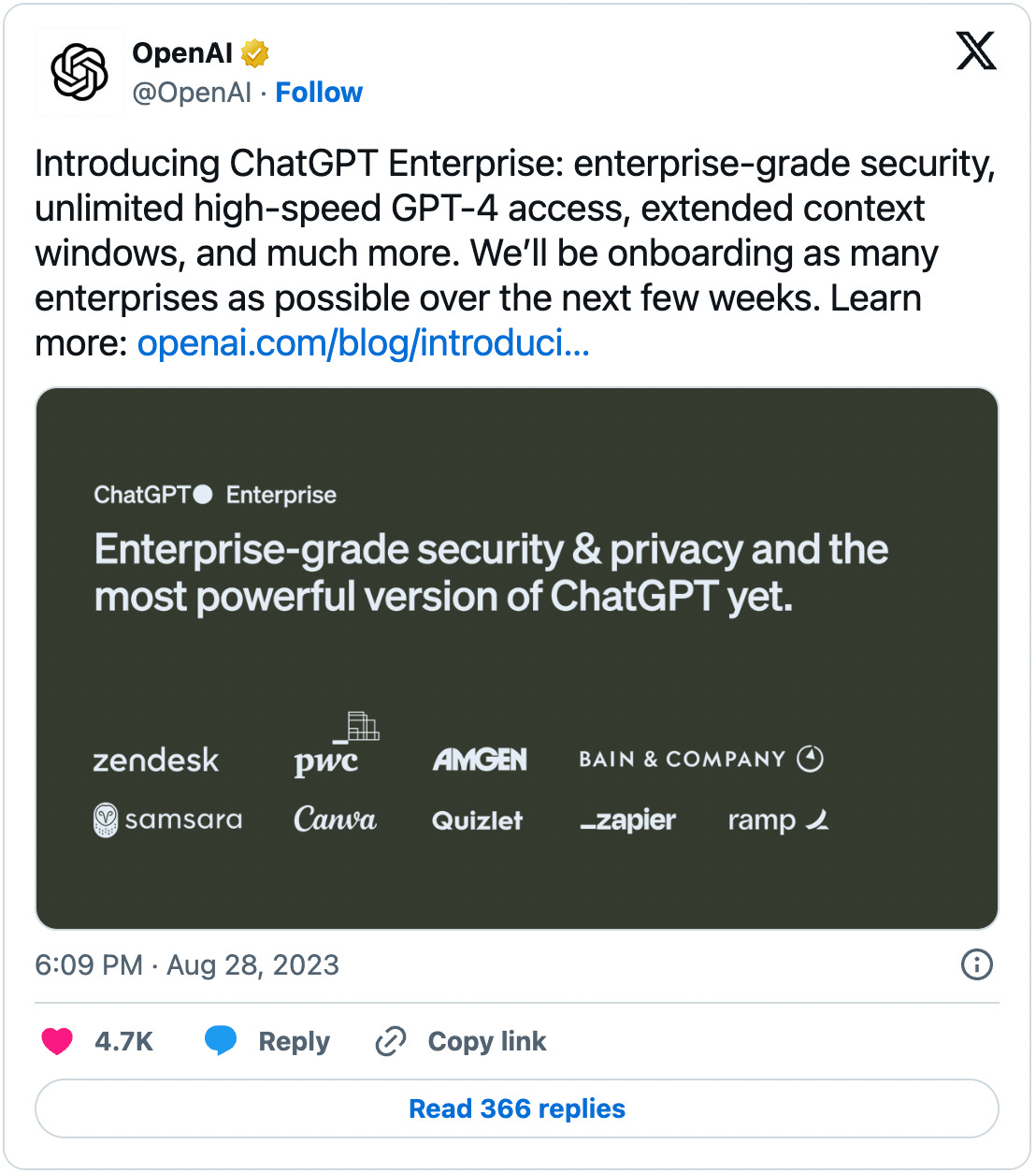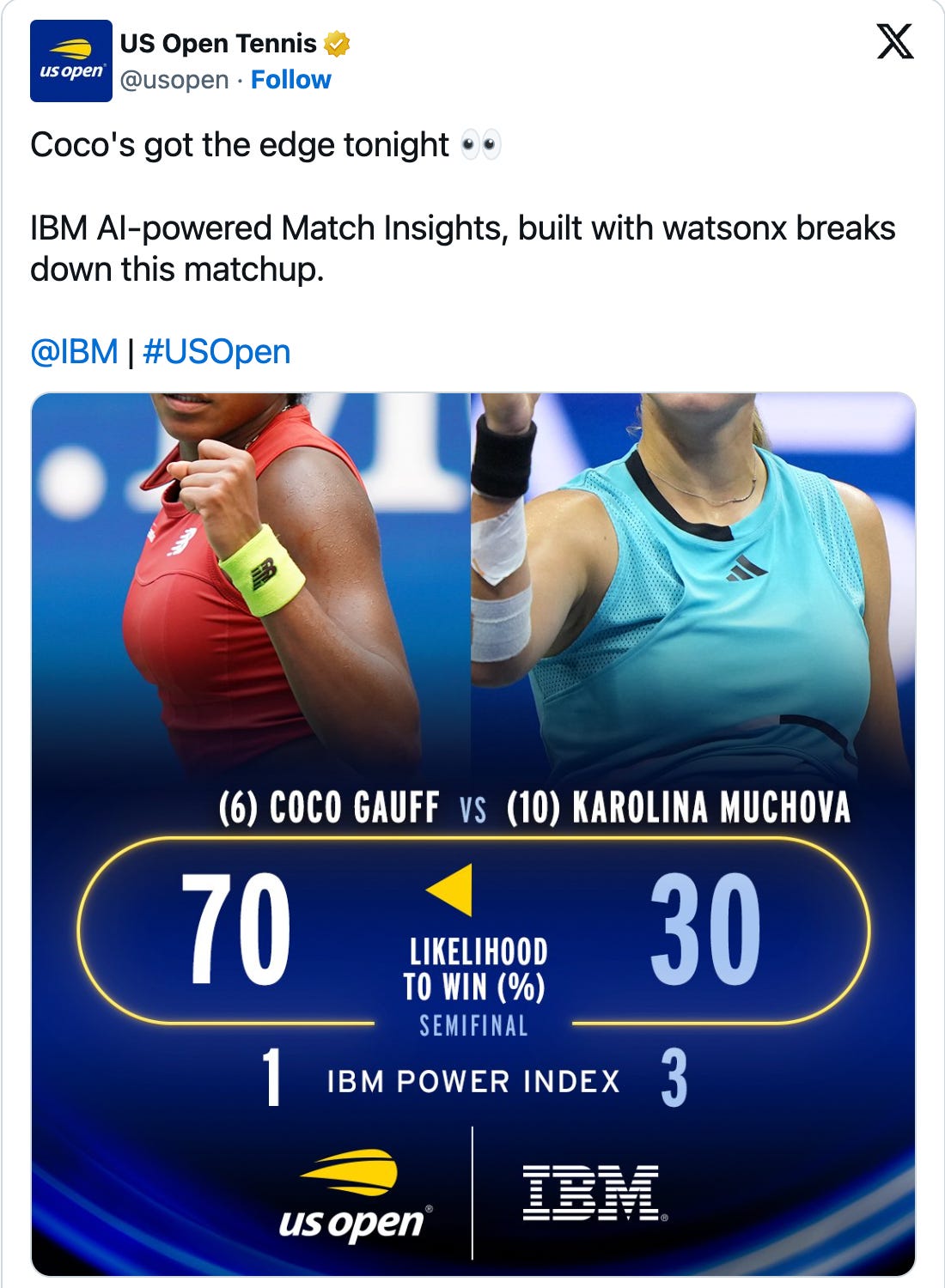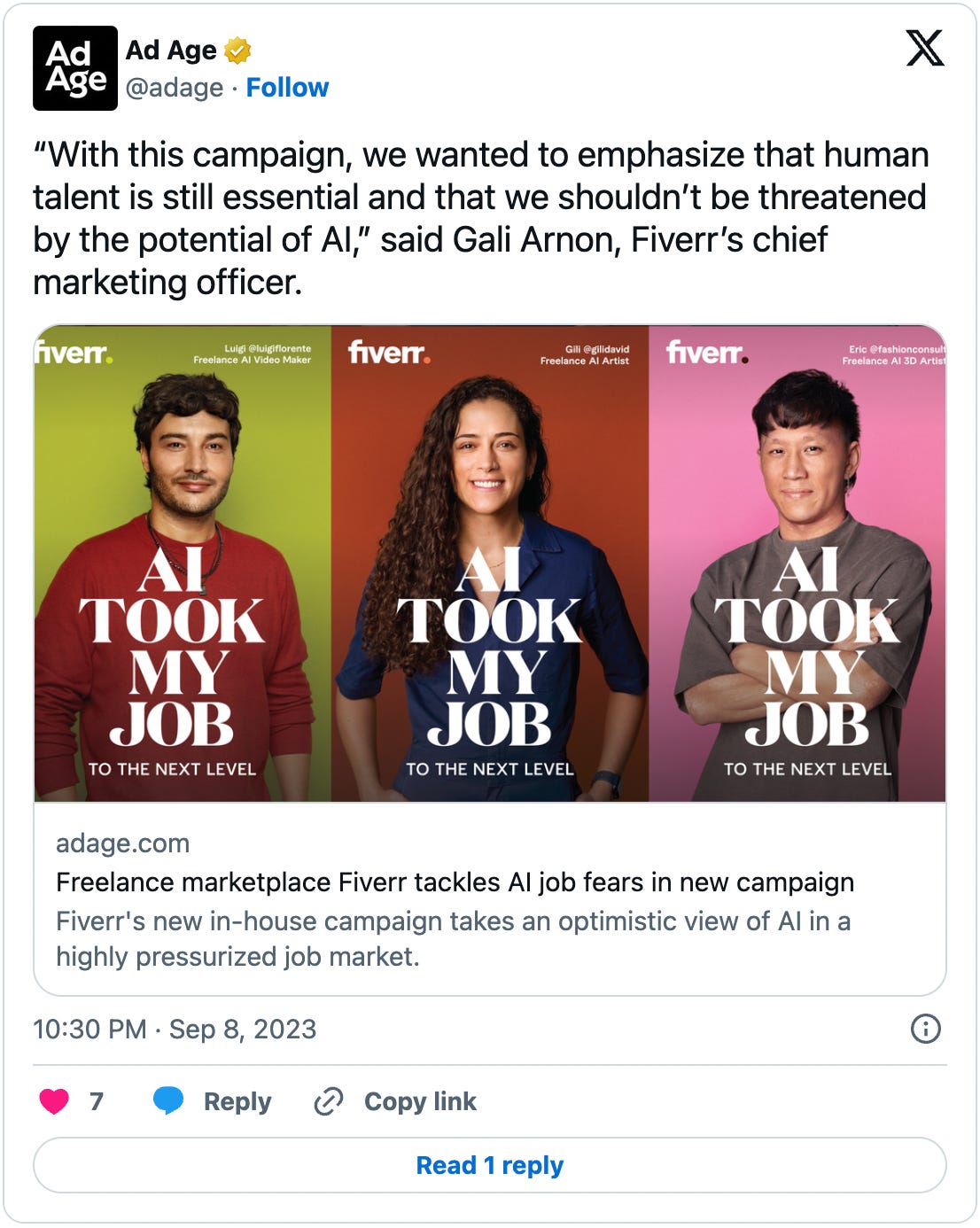US OpenAI: Is Artificial Intelligence Ready to Serve Your Organisational Workflows? 🎾
The launch of ChatGPT Enterprise and US Open's use of watsonx will have many organisations scrambling to identify where AI fits in their workflows, but its important to first get the right foundations
Not yet a subscriber? Join 1441 sports business leaders, from the Premier League to Formula 1, that read Sports Pundit every week to get impactful industry insights.
BIG IDEA
Earlier this month, OpenAI launched ChatGPT Enterprise, a commercial version of its popular generative AI chatbot aimed at business users.
The new offering seeks to bring the power of large language models (LLMs) into corporate workflows and, in doing so, has already been adopted by heavy-hitters like Canva, The Estée Lauder Companies, PwC, and Zapier.
This enterprise version of the ChatGPT product can summarise reports, compare strategy options, and even suggest marketing campaigns or product ideas. In the process, it is redefining companies workflows - particularly where they have typically involved manual tasks.
By introducing AI-powered workflow automation, whether it be via this recent release from OpenAI or not (other AI vendors are also available), there are huge opportunities to make processes smoother, faster, and more efficient - including for those operating across the sports industry.
For instance, the US Open, through its partnership with IBM, is using the generative AI capabilities of watsonx to deliver audio commentary and text captions on video highlight reels of every men’s and women’s singles match - a function that would have previously taken hours, as well as provide match insights.
Going a layer deeper, the tournament’s use of watsonx.governance helps to more broadly guide and oversee their use of AI within operations, assisting in the day-to-day management of AI-related tasks and processes.
Primarily, the idea behind AI-powered workflow automation is about eliminating complexities from a process - often reducing costs in the process. However, it’s important to recognise that this doesn’t directly translate to the elimination of human intervention or jobs.
Speaking on the podcast Invest Like The Best with host Patrick O'Shaughnessy, Des Traynor (co-founder and Chief Strategy Officer, Intercom), explained his belief in the idea of a flywheel - where the humans help the bots and the bots help the humans.
“In general, we believe the future of customer service will involve humans and bots. And we care a lot about making sure that they can work together really well and they can interoperate,” said Traynor.
This has the potential to have a significantly positive impact, given that studies have shown employees currently spend 69 days in a year on mundane, repetitive tasks - at a cost of $5 trillion (with a T) to companies in lost productivity.
By delegating these repetitive tasks to AI, employees, and businesses have the time to instead provide meaningful services to their customers that they may otherwise have not had time for - including providing more personable experiences.
This theory is backed up by Jorge Zuniga, Head of Data Systems and Integrations at Asana, who claims ChatGPT Enterprise has already cut down research time by an average of an hour per day, increasing the productivity for people on his team - and by this recent campaign from Fiverr.
It would seem, therefore, that whether organizations are currently throwing themselves fully into the AI furore or not, developing and implementing a coherent strategy and policy around the technology, like Asana, Intercom, Fiverr and the US Open all have, is a must.
But it’s also important not to panic.
While some companies are beginning to hire for dedicated AI positions internally, such as a Chief AI or Chief Automation Officers (CAOs), for others, it makes more sense to add AI responsibilities to existing roles, such as data engineers or product managers and use vendors - at least for now.
While AI becomes more common by the day, there is a temptation to move quickly to hire dedicated leadership in this space to most effectively harness the potential of AI.
However, the reality is that such a position is one that most companies are not yet ready for…
For example, while automation can improve team productivity by labelling, classifying and enriching raw data within minutes, if the data quality is poor, organizations will first need to get the foundations correct with proper master data management, quality and governance.
Ultimately, the readiness for a business to use AI or hire for an internal role within the organisation will depend on their AI maturity level:
Do they have the necessary infrastructure, data capabilities, and AI talent in place?
If not, this is where they will need to begin - and where I believe we will see a rise in consultancy and services businesses being built to specifically serve these different industries - including across the sports industry.
Not yet a subscriber? Join 1000+ sports business leaders, from the PFL to Premier League, that read Sports Pundit every week to get impactful industry insights.
JOB BOARD
Senior Coordinator, DTC Strategy - National Football League (California, US)
Commercial Strategy and Insights Executive - Chelsea (London, UK)
Director, Consulting (Sports & Entertainment) - Wasserman (London, UK)
Communications Manager - Manchester City (Manchester, UK)
Manager, Global Marketing Strategy - Major League Baseball (New York, US)
Do you have a job you’d like to promote to the amazing readers of this newsletter? Drop me a note at andy@sportspundit.org
Want to hang out with me and other readers at the end of the month? 🤔
I’m officially launching the Sports Pundit Social Club, a series of events (starting in London, with a view to expand) where readers can get together and socialise.
No agenda, no entry fee, and some of the drinks are even on me, well…, Growthdeck (who you can find out more about here).
To join us for the event on the 28th September, please RSVP via the link below 👇










